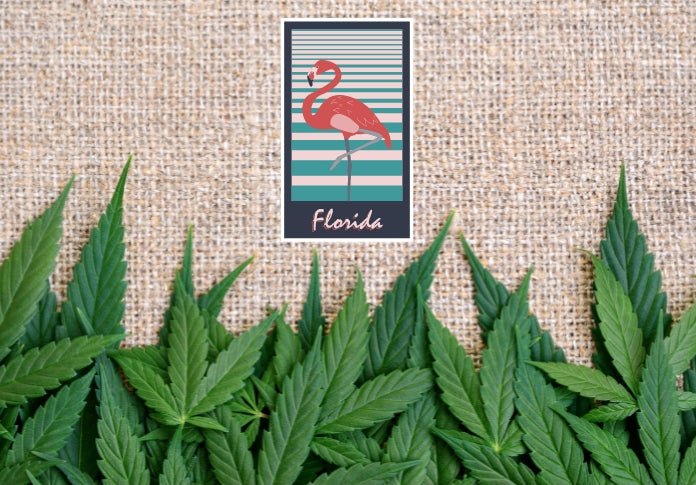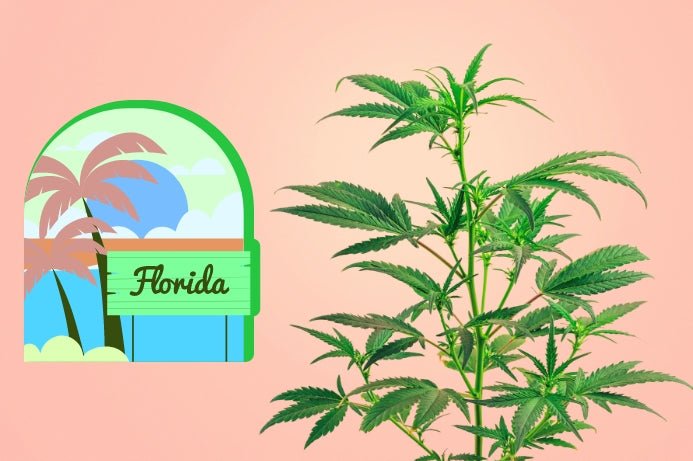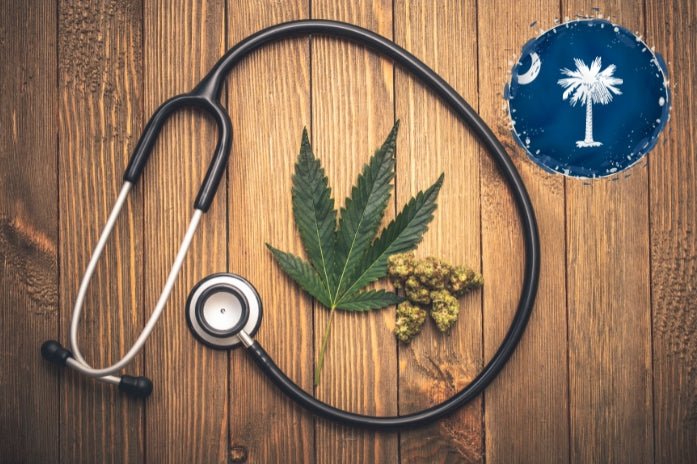As more and more states continue to attack and severely limit the legal hemp industry, Florida officials are attempting to effectively eliminate its hemp sector as voters prepare to decide on an adult-use legalization measure this coming November.

During times of war, as the relentless day-to-day reports recount the carnage and loss, it is easy sometimes to forget the flesh and blood individuals suffering and losing their lives. While the current civil war raging between the hemp industry and its big brother cannabis is by no means an actual war with real human lives being lost, it is nonetheless a battle with devastating losses manifesting in jobs lost, businesses destroyed, and families’ financial futures put in peril.
The latest battleground is the state of Florida. According to numerous media outlets, on Monday, the State House’s Agriculture and Natural Resources Appropriations Subcommittee advanced a measure that would severely restrict intoxicating hemp derivatives (IHDs), such as delta-8 and delta-10 THC. Committee members passed the bill by an 8-4 vote.
The controversial legislation, House Bill 1613, would place an outright ban on any hemp-derived products containing delta-8 and delta-10 THC, as well as other IHDs, including hexahydrocannabinol (HHC), tetrahydrocannabinol acetate (THC-O), tetrahydrocannabiphorol (THC-P), and tetrahydrocannabivarin (THCv).
Despite the severity of the restrictions, Republican State Representative Tommy Gregory, the bill's sponsor, contends his measure is less about crime and more about public safety. In a statement, Gregory said, “This bill is not designed to criminalize behavior. This bill is designed to be a consumer protection tool.”
"This bill is not designed to criminalize behavior. This bill is designed to be a consumer protection tool."
- Republican State Representative Tommy Gregory, HB 1613 Sponsor
Along with the bans on IHDs, Florida Politics reports that the legislation also redefines hemp such that “hemp extract may not exceed 0.3% total delta-9-THC concentration on a wet-weight basis or exceed 2 milligrams per serving and 10 milligrams per container on a wet-weight basis.”
This new definition is much more restrictive than the 2018 Farm Bill, which legalized hemp and all of its downstream products and uses. In addition, according to industry advocates and stakeholders, this latest attack on the Florida hemp industry would effectively prohibit most products available, including full-spectrum CBD oils.
Much of the legislation currently being enacted or contemplated across the country concerning the hemp industry is directed at the vast proliferation of IHD products, most notably the much-maligned and misunderstood delta-8 THC. Citing a lack of regulation and safety protocols, lawmakers are using a legislative “shotgun” or “sledgehammer” approach to address the issue, leaving thousands of hard-working hemp business owners and employees as casualties in their wake.
While proponents of the Sunshine State’s hemp market sector understand the need for some level of regulatory action by lawmakers and health officials, many, including members of the State House, believe HB 1613 is far too restrictive and punitive. They also fear it could potentially destroy the hemp industry in Florida, which is predominantly made up of small, locally-owned companies.
During Monday’s subcommittee hearing on the measure, Democratic Representative Hillary Cassel gave a grave and blunt assessment of the bill’s potential impact. Suppose both houses of the legislature approve it, and it is subsequently signed into law by anti-cannabis and anti-hemp Republican Governor Ron DeSantis. In that case, Cassel fears it would mark the end of Florida’s young and burgeoning hemp economy.
“You will go to another state. And we will find our consumers and Floridians in a position where they will be buying [hemp products] from the black market, buying it off the internet and having no idea what’s contained within that product,” she said to those in the hemp industry attending the hearing.
"You will go to another state. And we will find our consumers and Floridians in a position where they will be buying [hemp products] from the black market, buying it off the internet and having no idea what’s contained within that product."
- Florida State Democratic Representative Hillary Cassel
Several hemp business owners attended the hearing, and when given the chance to speak, they did not hesitate to articulate the grave and devastating effects the proposed legislation would have on their respective businesses.
Michael Pool, who operates Tampa-based hemp retailer Astrobleme, explained that the milligram restrictions in the bill would not only prohibit the IHDs targeted by the legislation but would also have far-reaching detrimental effects on several non-psychoactive products used by thousands of individuals across the state.
“I have products in over 80 stores across the state. Most of those stores are doing $2,000 a month, $3,000 a month, to $4,000 a month in sales of my products. And to just completely remove that would not be to my detriment, but all those others,” Pool told the Florida Phoenix.
"I have products in over 80 stores across the state. Most of those stores are doing $2,000 a month, $3,000 a month, to $4,000 a month in sales of my products. And to just completely remove that would not be to my detriment, but all those others."
- Michael Pool, Owner of Tampa-based Hemp Retailer Astrobleme
Despite the apparent adverse effects of the bill, Gregory is defiant in his belief that his legislation will not harm the hemp industry in Florida. When asked by Representative Thad Altman, chair of the Agriculture and Natural Resources Appropriations Subcommittee and a fellow Republican, how he thought the measure’s passage might impact the state economy, Gregory flippantly responded by saying, “I don’t concede that that actually it’s going to have a negative fiscal impact on businesses or revenue derived from taxes based on those businesses.”
"I don’t concede that that actually it’s going to have a negative fiscal impact on businesses or revenue derived from taxes based on those businesses."
- Republican State Representative Tommy Gregory, HB 1613 Sponsor
Glen Sheppard and his wife Tallulah, owners of a chain of smoke shops around Florida, vehemently disagree. “To say that there won’t be any economic impact to the state of Florida, I can tell you that’s totally false. It’s strange that somebody can come stand up here and claim one thing that’s totally, obviously not true at all,” Sheppard said.
"To say that there won’t be any economic impact to the state of Florida, I can tell you that’s totally false. It’s strange that somebody can come stand up here and claim one thing that’s totally, obviously not true at all."
- Glen Sheppard, Florida Hemp Shop Owner
The measure’s companion bill in the Senate, SB 1698 from Republican Senator Colleen Burton, has already been approved by that chamber. Gregory’s proposed legislation will next move on to the House Infrastructure Strategies Committee for a debate and vote. If it makes it past that final subcommittee hurdle, HB 1613 will move to the House floor for a full member vote.
As with many of these wildly outrageous legislative attacks on the hemp industry, Florida’s latest attempt to stifle the popular market sector comes as the state’s Supreme Court ponders whether to allow a ballot initiative that would legalize adult-use cannabis for adults over 21 to be placed on the ballot this coming Election Day.
It’s almost like there is a concerted effort to wipe away the groundwork laid by those hard-working and dedicated hemp business owners in favor of the large multi-state cannabis operators, who will inevitably swoop in and take over both the hemp-derived intoxicant and cannabis markets. Despite what the movies say, Greed is NOT always good.








































